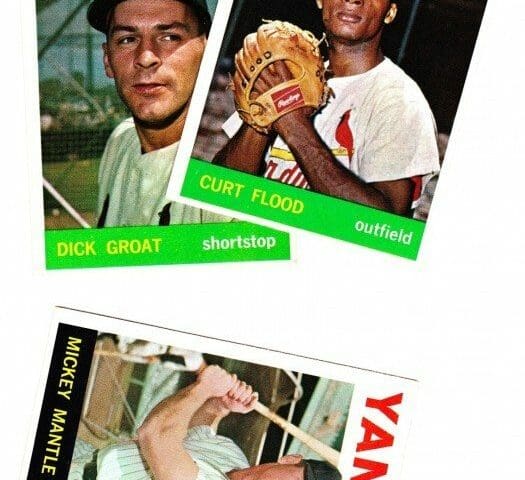
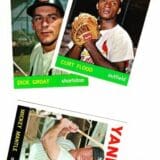
The upcoming Major League Baseball All-Star Game will be the first hosted by the New York Mets since 1964, reminding me that following the All-Star break that same year, my St. Louis Cardinals staged one of the most thrilling comeback stories in baseball history.
I say “my Cardinals” because during my adolescence in Lawn Guyland, my friends and I lived and died by the clubs we followed. For us, the glories and the tragedies of the Cards, Don’s Dodgers, Josh’s Braves, Peter’s Giants and Lenny’s Yankees were as intense as the ups and downs of our relationships with our girlfriends. If we’d had girlfriends, that is.
In September of 1964, with just 12 games to go, we (always “we,” never “they”) were 6.5 games behind the Philadelphia Phillies, whose notorious Philly Phold — the team lost 10 in a row — led to an extraordinary final two days with four teams still in the race.
» Read more about: House of Cards: A Pennant Race Remembered »


(The following post about the Netroots Nation conference, recently concluded in San Jose, California, first appeared on JesseLuna.com and is reprinted with permission. Jesse Luna is a communications specialist with SEIU Local 721.)
The labor message was strong at the Netroots Nation 2013 conference. There was a consistent message across sessions and activities, a strong focus on the rise of what is being called “Alt Labor” and there were some good worker actions. Labor must be a part of the progressive movement.
Sessions and Activities
It was common to have pro-union voices at the different sessions and even during the activities. During a taco truck lunch event, several elected officials took to the microphone and spoke about the need to raise the minimum wage. Two young people also spoke about their experiences working at fast food places, the low wages and poor working conditions there.
Fifty years from now, when people want to know what relationships between women and men were like in 2013, they’d be well advised to watch the new Richard Linklater film, Before Midnight. This is the third installment in a film series that follows the relationship of a young French environmentalist (Julie Delpy) and an American writer (Ethan Hawke). In the first film, Before Sunrise, they meet on a train while they are in their 20s and spend a chatty, romantic night together in Vienna. In the second, Before Sunset, they reconnect nine years later in Paris as 30-somethings and rekindle the connection. And in Before Midnight, after another nine years, they are a couple with 7-year-old twins vacationing in Greece.
The first two films are dreamily romantic and enticing to watch. The beauty of the location cities is matched by the beauty of the pair’s budding relationship.
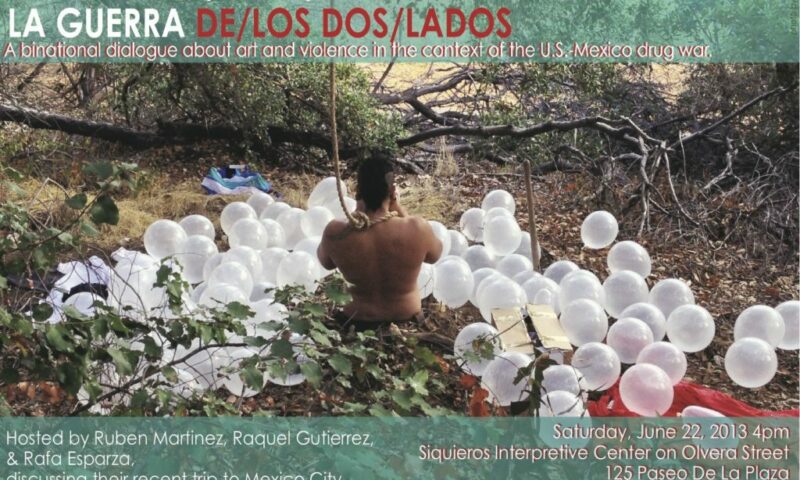

The blowback from getting high for some people is starkly simple: Americans want drugs that ship through Mexico, and the resulting crime surrounding this commerce exacts a toll on both sides of that frontier. The devastation, of course, has been far worse in Mexico, where cartels battle each other, as well as the government and innocent citizens, in a hurricane of violence that seems to be surging out of control.
A delegation of Los Angeles writers and artists recently traveled to Mexico City and Cuernavaca for several days of dialogue about the crisis. The L.A. group, which included author and professor Rubén Martínez, playwright-activist Raquel Gutiérrez and multimedia artist Rafa Esparza, heard how Mexico’s artists face the violence of the drug war. They spoke to poet Javier Sicilia, whose son was murdered in a cartel-related crime in 2011; critic and “artivist” Mónica Mayer; singer-songwriter Leticia Servín; poets Gabriela Jáuregui and María Rivera, and journalist Daniel Hernández,
» Read more about: Death Without Borders: Art and Mexico’s Drug War »


Saturday, June 22, Grand Performances will present Inequality for All, a film directed by Jacob Kornbluth in which former U.S. Labor Secretary Robert Reich examines America’s widening economic gap. The documentary, part of L.A. Film Fest, screens free at 8:15 p.m., outdoors, at California Plaza. Frying Pan News reporter Luke Dowling sat down with Michael Alexander, Grand Performances’ Executive and Artistic Director, to ask about the event and Alexander’s vision for Los Angeles’ arts landscape under the city’s new mayor.
Frying Pan News: Why did you decide to include a documentary about economic inequality this season?
Michael Alexander: Documentary filmmaking is an art and some of the documentary filmmakers that we’ve worked with have also touched on the very issues that face people in their everyday lives. What are people going to decide to do for themselves?
» Read more about: Bridging Great Divides: A Talk With Michael Alexander »


How are you tonight, 7-Eleven? with your smell
of departure and annoyance, your white bread, your drain cleaners,
your puddings, your cockroaches fanning out over the parking lot
like glossy marzipan soldiers lugging fearsome shadows.
It must be lovely to watch for dawn
coming over the EverTrust Bank and the Chevron station,
it must be trying
for the lively man with the turban (sales associate #33323)
to hang out with the seven moving objects of the sky,
the eleven ounces of the heart
and the sturdy sixteen-year-olds
picking their noses by the soda fountain.
7-Eleven—benign, broad-minded firebrand of night—
the great inward journey begins with you,
inexhaustible Christmas of green red orange HELP
WANTED Do we think we understand you, 7-Eleven? How sweet
the industrious freezer, the implacable milk,
the pounds of glaze,
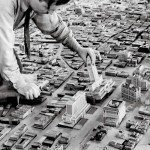

Words of Fire, the Frying Pan’s new poetry section debuted this week with a series poems the new mayor should read.
These five poems by some of L.A.’s finest poets are intended to help Mayor-elect Eric Garcetti look closely at our city and listen with care to its diverse voices, from janitors to sidewalk fruit sellers to donut shop insomniacs. They are also an antidote to the platitudes of the campaign trail, and a reminder that the best political speech – and acts – can tap into people’s deepest emotions and aspirations.
A Model of Downtown Los Angeles, 1940
The oldest Mercedes in California adorns
the crowded foyer of the L.A. County Museum
of Natural History, and babies shriek like bats
in the elevator that lowers my daughter
and me to the basement….
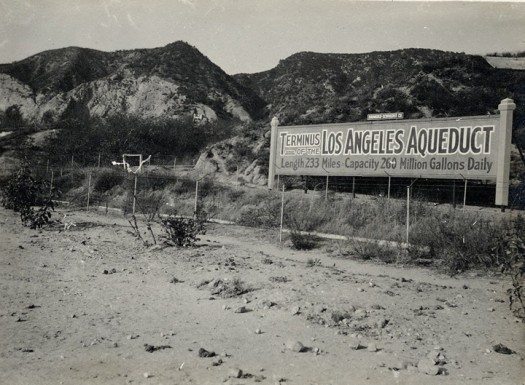
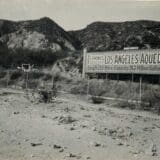
It’s a bright, guilty world.
–Orson Welles in The Lady from Shanghai
But there is no water.
–T.S. Eliot, The Wasteland
The oldest Mercedes in California adorns
the crowded foyer of the L.A. County Museum
of Natural History, and babies shriek like bats
in the elevator that lowers my daughter
and me to the basement. There, among the faint,
intermingled drifts of ammonia and urine
from the men’s room, phantom display lights
luring the shadows over the inventions of Edison
and Bell, and dusty monuments to a century
of industrial progress, lies the mock-up L.A.,
whose perusal has been assigned to my daughter’s
fourth-grade class in California history.
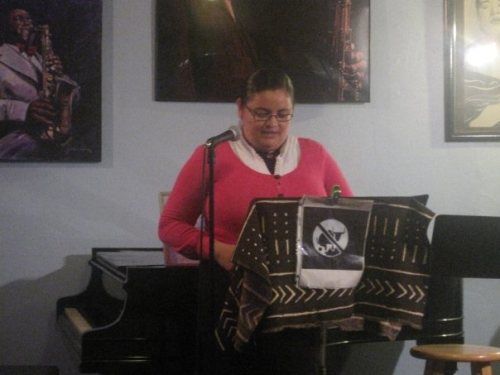
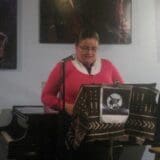
As dawn breaks through the crimson curtains,
you rise, kiss Amá goodbye, the only time
I see you do this, drive away,
circles of dust and tire marks remain.
You return four months later with the trunk full
of crates of strawberries peaches, apricots,
grapes, and plums. The nectar seduces our lips,
seeps through our fingers. Our nights fill
with dreams of this Garden hidden
in the center of the valley.
Most nights you sit in the dark, whisper
about a scornful sun, of being forced
by a landowner to hold a blue whistle
between your lips so you won’t be tempted
to consume the fruits you pick. The sound
of whistles merged with the rustle of the wind
fills the fields like a bird song.
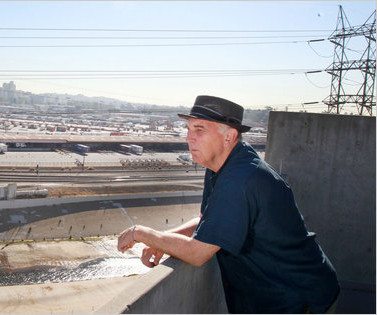
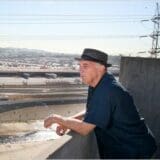
“If politics were the science of humanity.”
–W.C. Williams
Dear American people, I’ve just got
to talk to you about your government.
You are the government,
the way we are the earth and sky, the way
we are the blood and the government
the branches of the tree. You and I
are the government and we need
no more amateur presidents, please.
Once again, if you and I are the suit,
the government’s the tie we wear into the world.
America, we are the fabric; and to knit that tie together
takes statecraft. Is it too much to ask ourselves
to pay attention?
To make of government a proper tool?
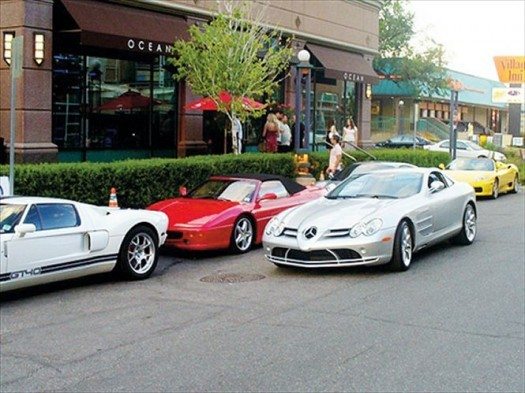
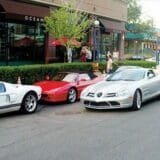
Last Friday, my wife, Susan, was out where Santa Monica meets Brentwood to tell the President not to approve the Keystone XL pipeline. No one caught a glimpse of him, of course. What she did see were scores of expensive cars moving down San Vicente – black, big SUVs, as usual, and top-of-the-line Mercedes and BMWs but also Jaguars, Ferraris, a Rolls, even a Lamborghini, plus others she couldn’t name. These cars begin at $75,000 and go to the mid-six figures.
Also trying to wind though the traffic maze were the workers, gardeners in small, beat-up Toyota pickups, house maids in compacts from 20 years ago, bunches of Latinas waiting at the bus stop for public transportation and delayed by the President’s presence at a fundraiser in a nearby home. The juxtaposition of the vehicles of the very wealthy and those of their servants was what she found remarkable about the experience.
» Read more about: Santa Monica’s Lethal Shootings and the Culture of Economic Desperation »
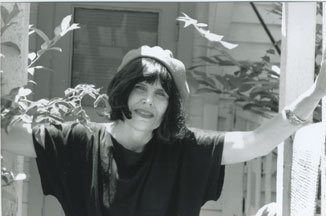

It’s late, so the late
Karen Carpenter comes off
the radio at 1 a.m. The diners
complain; she’s passé, she’s so
post-mortem. You see,
it’s Night of the Living.
Outside the sirens rise up
and home in. Now I’m upstairs
asleep, lost to this din,
but downstairs the Usuals
stake out a square
of linoleum, sit down and
fit in.
Like the jailed I bet
they get the same damn thing.
Some special—Styrofoam.
They sip the rim. I bet
at this hour the donuts
lie face up, half
human. The walls are glass
there, so those guys can see
the fix they’re in: a block
of illegally parked cars,


after the long day’s hustle, Papa returned
home waving fistfuls of Tootsie Rolls, wolfed down
his supper, changed from his suit into his long-sleeved
gray coveralls or blue cotton smock and slid out of
silky stockings and Italian leather loafers into white
cotton socks and well-scuffed All-American work shoes
for his night shift scrubbing and waxing corporation floors
we missed his loud full laughter
around the television and what company we had
wasn’t as interesting as the visitors
who came through when he hung around home
but we trusted Papa was doing his best
to become “healthy, wealthy and wise”
without shame over shameful wages—enough
indian head nickels to finance a scheme
(the men he worked graveyard with
always became buddies
and no matter whose car broke down,


America’s economy will suddenly grow by $400 billion — roughly three percent –on July 31, when the Bureau of Economic Analysis begins to include in its GDP calculations the value of investments in such intellectual property products as songs, books and movies. The new numbers will reveal that Stephen Sondheim, Stephen King, Steven Spielberg and Ray “Even Stevens” Stevens have been far more important to the nation’s financial well-being than government stats have previously indicated.
This news feels as uplifting as a double dose of premium-grade placebo. But there’s more than feel-good bookkeeping at stake here. Plays, stories, films and music generate wealth – wealth government stats are supposed to measure.
The nation has always struggled with who owns that wealth. In the Wild West frontier of the internet, music, films and news were easily pirated. Now, there’s a newer, quite possibly wilder West,
» Read more about: Digital Fabrication: More Than the Stuff of Dreams »
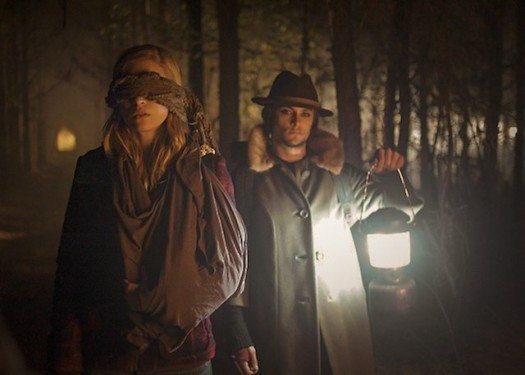

This post originally appeared on Dog Park Media.
The East, just out this weekend, is a movie ostensibly about radical anarcho-environmentalists that has little to say about radicalism, anarchism, or environmentalism. It’s not a bad movie; as a suspenseful drama it’s entertaining. But that’s part of the problem. The entertainment comes first, and second, and third, and the politics last. This is one of those “I want to entertain my audience, but also make them think” movies in which politics ends up providing little more than a cardboard backdrop to what is finally a conventional thriller.
Fair warning: this will include every imaginable spoiler.
The first strategy The East uses to push politics to the background is to make the radicals’ targets as uncomplicated as imaginable. “The East” (the name of the radicals’ semi-revolutionary cell) first goes after a drug company marketing a product that is not only dangerous but reliably so;
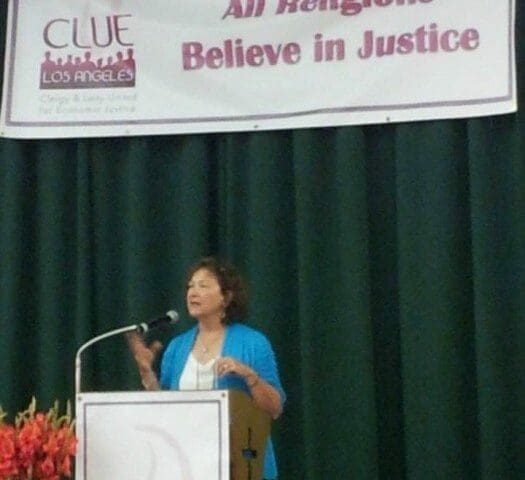

Vivian Rothstein was one of four recipients of a “Giant of Justice” award from Clergy and Laity United for Economic Justice Los Angeles (CLUE-LA) last week. She’s a longtime friend and mentor of mine, and was introduced at the breakfast by a longtime friend and mentor of hers, Rev. Jim Lawson. In his intro, Lawson invoked the concept of the “beloved community,” a well-worn phrase whose meaning is often either trivialized or simply lost. So much a part of the civil rights movement from which Vivian’s activism sprung, the idea of a beloved community is what Vivian has imparted to so many of us – that organizing must be rooted in a basic decency and love, and in being so rooted, is transformative well beyond whatever immediate victories, however substantial, may be achieved. We’ve reprinted her speech because it is a such a remarkably well-told story. Not captured here is how it ended,
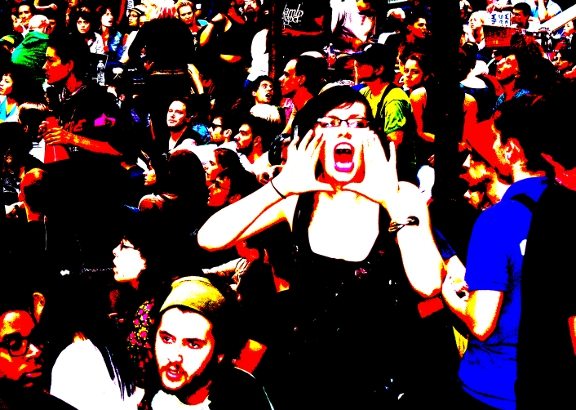

This article originally appeared in The Nation.
In The Democracy Project: A History, A Crisis, A Movement (Spiegel & Grau, 2013), David Graeber’s engaging new book on Occupy Wall Street, the author writes of the dismal culture in Washington during the summer of 2011, a few months before the occupation of Zucotti Park:
Republicans were threatening to cause the US government to default in order to force massive cuts in social services intended to head off a largely imaginary debt crisis…President Obama, in turn, had decided the way to appear reasonable in comparison and thus seem as his advisors liked to put it ‘the only adult in the room’ was not to point out that the entire debate was founded on false economic premises, but to prepare a milder, ‘compromise’ version of the exact same program—as if the best way to expose a lunatic is to pretend that 50 percent of his delusions are actually true….
» Read more about: The Anarchy Project: David Graeber’s Occupy Wall Street »
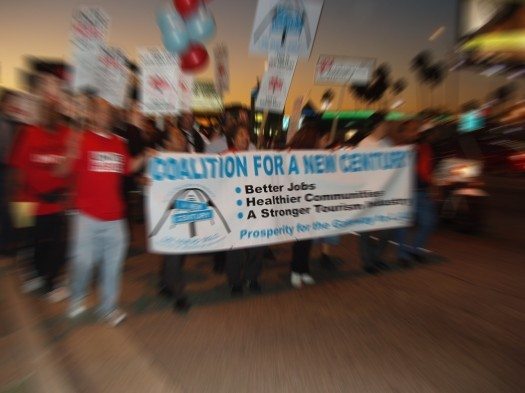
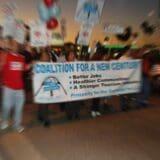
A friendly and regular reader of this blog wrote me that she recently spent a week sitting in on the trial of a teenaged girl in Compton who was tried for murder and will likely spend the rest of her life in prison. She regularly responds to my essays and often asks me to explain exactly what we can do to change the circumstances of injustice that I write about. Such situations seem – like that of the young girl whose trial she watched – impossible to affect, much less fix.
Still, my reader’s question remains a fair one, and I have given it a lot of thought. I know what I do, and it ranges on a continuum from action at a distance to action up close. On that first end of the scale, I make it a practice to sign every petition that crosses my path. Stop the Keystone XL Pipeline,
» Read more about: Living in a World Without Justice: What We Can Do »
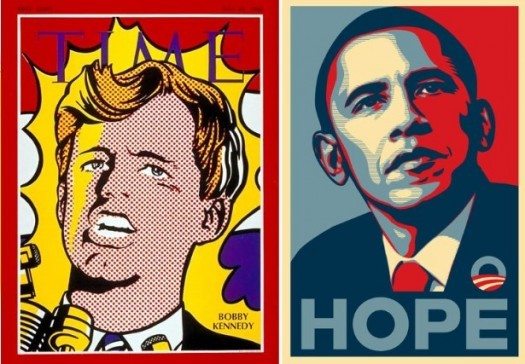
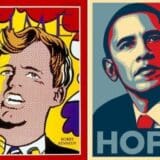
Many of you soon-to-be college graduates are determined to make the world a better place. Some of you are choosing careers in public service or joining nonprofits or volunteering in your communities.
But many of you are cynical about politics. You see the system as inherently corrupt. You doubt real progress is possible.
“What chance do we have against the Koch brothers and the other billionaires?” you’ve asked me. “How can we fight against Monsanto, Boeing, JP Morgan and Bank of America? They buy elections. They run America.”
Let me remind you: Cynicism is a self-fulfilling prophesy. You have no chance if you assume you have no chance.
“But it was different when you graduated,” you say. “The Sixties were a time of social progress.”
You don’t know your history.
When I graduated in 1968, the Vietnam War was raging. Over half a million American troops were already there.
» Read more about: College Graduates: Cynicism Is a Self-Fulfilling Prophesy »
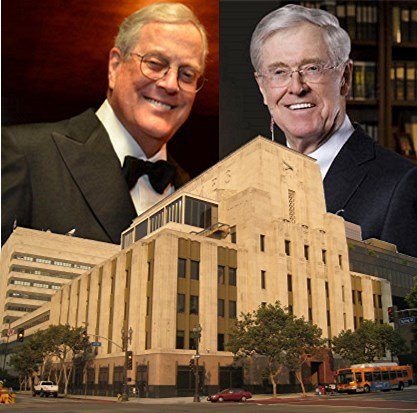
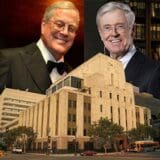
The L.A. Times has not exactly been falling all over itself lately to curry favor with the city’s labor movement, with a seemingly endless stream of news stories, columns and editorials portraying unions in a less than sympathetic light. So the last thing one might have expected to see was a rally of workers and labor leaders coming to the defense of L.A.’s paper of record.
But desperate times call for desperate measures – and with the Koch brothers potentially poised to take over Spring Street, the present moment certainly meets the test.
In case you have tuned out the Times and every other source of local news, Charles and David Koch – patron saints of the Tea Party, best friends to climate change deniers and bankrollers of an endless parade of far-right causes – have set their sights on the Tribune Company’s empire. After emerging from a bankruptcy brought on by the rapacious practices of former owner Sam Zell,
» Read more about: Desperate “Times” at Anti-Koch Brothers Rally »